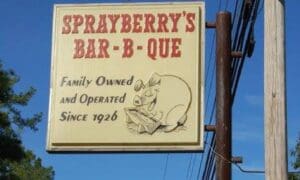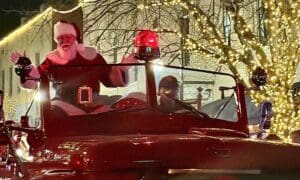By Joan Doggrell
Special to The Citizen
Some Christians begin celebrating Christmas right after Thanksgiving (or even Halloween if they’re in retail). But for Episcopalians, Christmas begins on Christmas Eve.
For Episcopalians, the weeks leading up to Christmas are the Advent season: a time of preparation. It’s a solemn time, but with an underlying anticipation of the joyful event to come.
St. Paul’s Episcopal Church in Newnan is marking this season with an Advent Lessons and Carols service Dec. 14 at 4 p.m., and the public is invited. Each of the nine scripture readings will be followed by a magnificent piece of music led by St. Paul’s organist and choir director, William Fred Scott.
The first reading begins with the story of Adam and Eve, the serpent, the apple and the foreshadowing of Christ as the second Adam. It is followed by an ancient anthem, “Adam Lay Ybounden,” arranged for modern times by Robert Walker.
The next lessons foretelling the good news are accompanied by carols, anthems and hymns, sung either by the choir alone or with the congregation, including Bach’s “Zion Hears the Watchman Crying,” Barry Ferguson’s “People Look East” and various hymns such as “Let All Mortal Flesh Keep Silence” and “Savior of the Nations Come,” as well as “And the Glory of the Lord” from Handel’s Messiah.
As the lessons get closer to the baby and his holy mother, the choral music gets more contemplative.
The familiar “Lo, How a Rose E’er Blooming” will be heard alongside a lovely piece by the English composer Andrew Carter, “Mary’s Magnificat.” The congregation and the choir will sing “In the Bleak Mid-Winter,” a musical setting one of Christina Rosetti’s most loved poems.
The service will end with a reading from the Gospel of Mark, reminding us again of the reason we are “waiting” during Advent.
“The point is [that] this is such a great event in our lives, and the world’s history, that it’s worth waiting for,” said choir director Scott.
The last anthem is by Mendelssohn, “How Lovely are the Messengers that Preach Us the Gospel of Peace.”
“What a blessed Christmas gift that would be: peace,” Scott said.
Carol singing goes back thousands of years.
The earliest carols were pagan and sung in honor of the Winter Solstice.
The early Christian carols were sung in Latin, which meant the common people couldn’t sing them.
However, in 1223, St. Francis of Assisi introduced nativity plays in Italy that included singing.
People loved the songs and wanted to sing themselves.
Translated into the common languages, these songs spread into France, Spain, Germany and other European countries.
In Elizabethan England, carols were not sung in churches.
They were more for entertainment than worship and were sung in homes and by traveling minstrels. “I Saw Three Ships” is such a carol.
Carol singing disappeared during the Puritan era (as did the celebration of Christmas), but reappeared in the Victorian period.
Orchestras and choirs throughout England were looking for Christmas music, and many new carols were written at this time, including “Good King Wenseslas.”
Carol singing in the streets became popular.
The English Festival of Nine Lessons and Carols was created and performed in 1880 by Edward Benson, then the Bishop of Truro in Cornwall.
It became a popular Christmas Eve service throughout England, but was made famous when it was performed at Kings College, Cambridge, in 1918 in celebration of the end of World War I.
Today, the two services of Lessons and Carols in the Episcopal Church (for Advent and for Christmas) are adapted from this King’s College service, which has become known worldwide since World War II through annual radio broadcasts on Christmas Eve.
Services of Lessons and Carols have brought comfort and joy to millions in good times and bad.
Join the St. Paul’s congregation as the tradition continues.
Childcare will be provided.
St. Paul’s Episcopal Church is located at 576 Roscoe Rd, Newnan, GA 30263. Call the church office at 770-253-4264 for more information.












Leave a Comment
You must be logged in to post a comment.